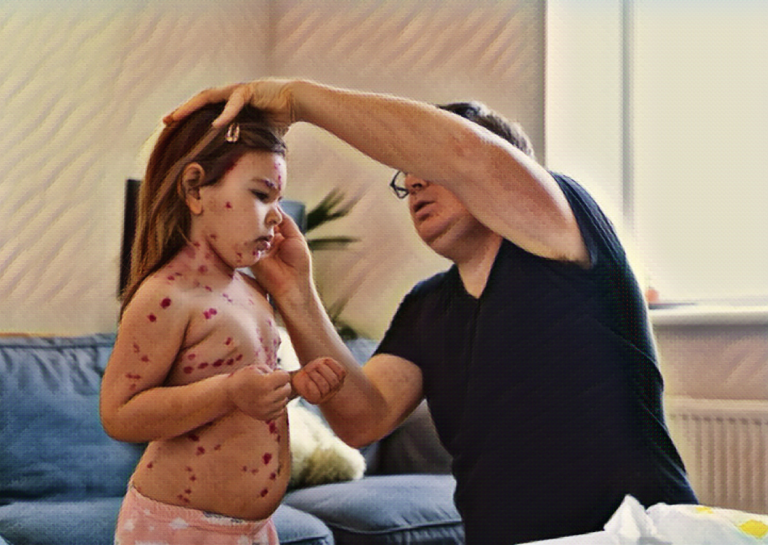Overview
Rubella is a viral infection that primarily affects children. The disease is caused by the rubella virus and is characterized by a distinctive rash and mild fever. While the disease is usually mild, it can have serious consequences for pregnant women and their fetuses.
Symptoms
The symptoms of rubella typically appear two to three weeks after infection. The most common symptoms in children include:
- A rash that starts on the face and spreads to the rest of the body
- Mild fever
- Swollen lymph nodes
- Headache
- Runny nose
- Conjunctivitis (pink eye)
- Fatigue
In some cases, children may also experience joint pain or stiffness, especially in the knees and wrists. These symptoms usually resolve within one week. However, some children may have a prolonged recovery period.
Causes
Rubella is caused by the rubella virus, which is spread through the air by respiratory droplets when an infected person coughs or sneezes. The virus can also be spread by direct contact with an infected person’s nose or throat secretions, such as saliva or mucus.
The virus can also be spread from an infected mother to her fetus during pregnancy, which can lead to serious complications, including miscarriage, stillbirth, or congenital rubella syndrome (CRS). CRS can cause a variety of birth defects, including deafness, heart defects, and eye problems.
Treatment
There is no specific treatment for rubella, and most children recover on their own within one week. Treatment is primarily supportive and may include over-the-counter pain relievers, such as acetaminophen or ibuprofen, to reduce fever and discomfort.
If a child has joint pain or stiffness, rest and physical therapy may be recommended to help alleviate symptoms. In some cases, children may also be prescribed nonsteroidal anti-inflammatory drugs (NSAIDs) to help reduce inflammation and pain.
Prevention
The best way to prevent rubella is to get vaccinated. The rubella vaccine is usually given as a combination vaccine, such as MMR (measles, mumps, and rubella), to children between the ages of 12 and 15 months, with a booster dose given between the ages of 4 and 6 years.
Pregnant women should avoid exposure to people with rubella and should check their immunity to the virus before getting pregnant. If a woman is not immune, she should avoid getting pregnant for at least 28 days after getting the vaccine.
Citations
Centers for Disease Control and Prevention. (2021). Rubella (German Measles). Retrieved from https://www.cdc.gov/rubella/index.html
American Academy of Pediatrics. (2020). Rubella. In: Red Book: 2020 Report of the Committee on Infectious Diseases. Elk Grove Village, IL: American Academy of Pediatrics.
